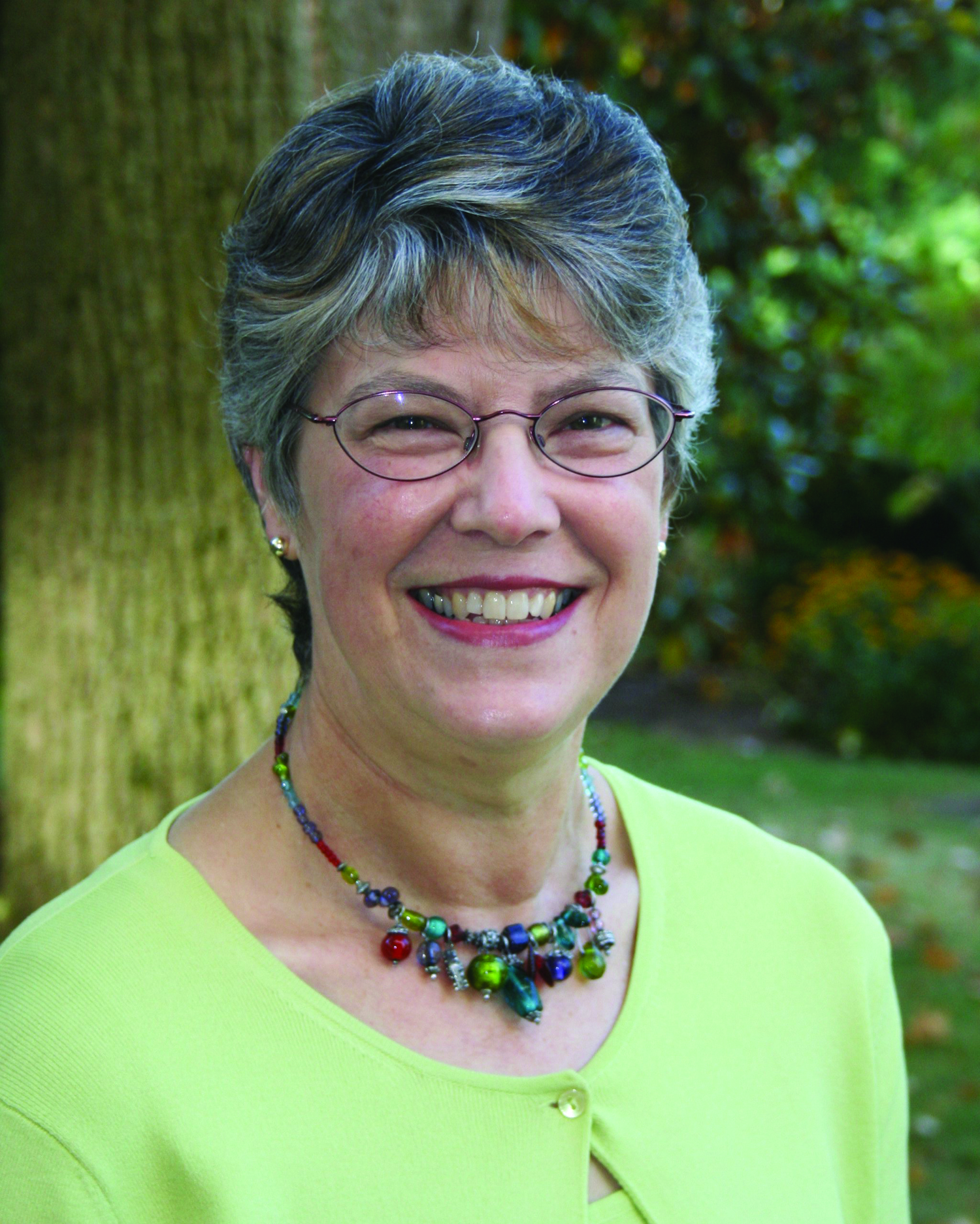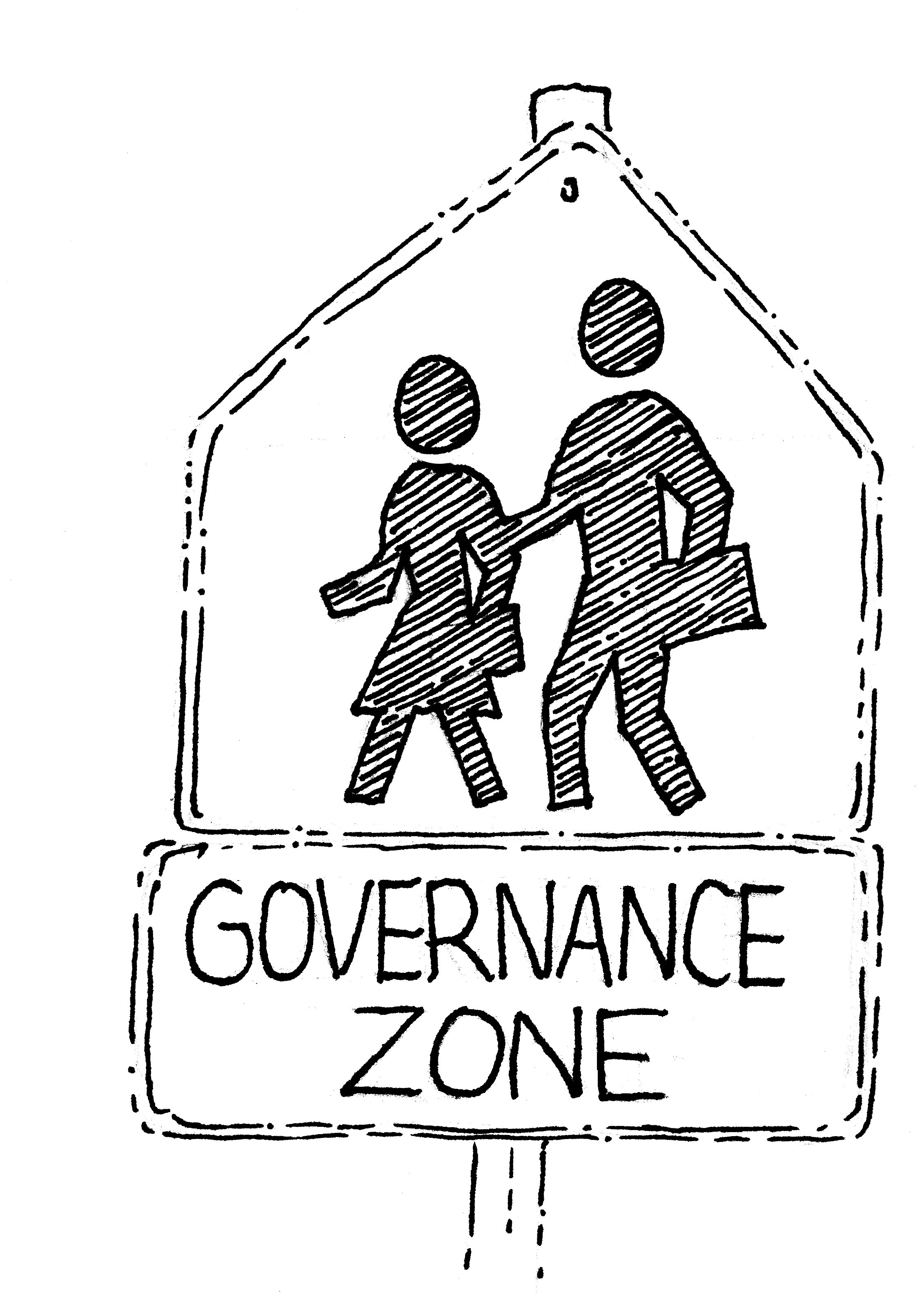The journey of board service starts with recruiting the right people and continues even after the official term of office ends. Guest editor Rebekah Burch Basinger has assembled an invaluable collection of new and previously published resources to mark the path from novice board member to well-loved veteran.
This is abridged from "Holding Itself Accountable: The Board's Responsibility for Self-Assessment," which appeared in 2003 in Theological Education (volume 39, number 2). It is reprinted with the permission of the Association of Theological Schools. Part I of this article appeared in the Spring 2006 issue of In Trust, pages 16-17.
When a board is giving attention to its own performance, it is inevitable that others within the institution will notice that something different is happening in the boardroom. The likely benefits of regular, formalized evaluation of the board's work include:
Heightened board-esteem
 |
| Rebekah Burch Basinger is In Trust's director of program development. She lives in Dillsburg, Pennsylvania. |
The feelings of belonging and being appreciated that result from knowing they are "making the grade" encourage trustees to give their best volunteer efforts and their most generous financial support to the institution. As board members are affirmed in their work — both in and out of the boardroom — they are more likely to seek to make even greater contributions.
Thoughtful and regular assessment of the board's work is a crucial step in moving trustees from the sidelines of institutional life and into full participation in advancing the theological school. As a board chair reported at the conclusion of a weekend retreat, "We've learned that satisfaction arises from substantive work on vital challenges facing the school rather than the trivial, perfunctory, insubstantial, and marginally related issues that we've sometimes been stuck with. "To this, every one of the more than 8,000 members of the boards of ATS-accredited schools should add a hearty "So may it be for us!" 
Greater clarity about the board's role
There's considerable unanimity within the governance literature concerning the "job description" for the boards of nonprofit organizations. There is less clarity, however, about how a board should organize for and carry out its assigned duties. Board members are frequently warned away from meddling in management issues and told to confine themselves to setting and policing operational policies. While there's something to be said for keeping the board at arm's length from day-to-day operations, a too-narrow definition of acceptable board behavior can leave trustees wondering why they even bother to show up for meetings.
By focusing on their own performance in the light of the challenges and priorities confronting the school, trustees are able to assess the appropriateness of the duties assigned to them. In a tight-knit seminary community, where shared governance and collegiality are deeply held values, it is all the more important to seek agreement about the roles of the various partners in institutional governance. Board assessment is one aspect of that seeking.
Affirmation of value added by the board
Board members want to know that their efforts count for something more than simply filling time in the boardroom. Regular assessment helps assure board members that they are adding value to the institution. Self-assessment also sends a clear message to the campus community that trustees are serious about their responsibilities and this, as the chair of a committee on trustees explained, helps to "bolster confidence in the board by all stakeholders."
Recognition of assessment as learning
 The assessment process creates teachable moments in the midst of the board's busy schedule, encouraging trustees to learn from both the good and the not-so-good of their recent work. As the boards' need to know is put ahead of what external agencies want to know, assessment becomes a powerful means of continuing education for trustees. Assessment also enables board members to test the usefulness of their learning plan to the life of the institution.
The assessment process creates teachable moments in the midst of the board's busy schedule, encouraging trustees to learn from both the good and the not-so-good of their recent work. As the boards' need to know is put ahead of what external agencies want to know, assessment becomes a powerful means of continuing education for trustees. Assessment also enables board members to test the usefulness of their learning plan to the life of the institution.
Better governance
If a seminary is to advance and thrive in today's turbulent times, every unit within the school — including the board — must operate in top form. Unfortunately, when academics talk about shared governance, the tenor of the conversation is usually on limiting the board's role rather than on enhancing the quality of its contribution to institutional planning and decision-making.
The wise board uses the assessment process to monitor the quality of shared governance on campus, and then moves ahead with confidence as a full player in the life of the institution. Data collected through a well designed assessment can dramatically change how a board uses its time, how it works with the president, and how the board, administration, and faculty work together on critical issues facing the school.
Opportunity to focus on faith
Consistent with the God-centered purposes of a theological school, the assessment process should challenge board members to consider the interplay of faith and governance. Good governance in a seminary setting is more than a legal requirement; it is a practice of faith. Theological school trustees have been given an exciting and unique role in the life of the church, and when approached with a ministry heart, board work can be an instrument for God's action. At its best, the assessment process should encourage trustees to reflect upon and testify to the ways in which the school's theological heritage, mission, and commitments to the church are reflected in boardroom decisions.
In the end, there's no one right way of assessment. And in fact, the mechanics of the process are far less important than the learning that can be gained and the change that can result from whatever method a board chooses in evaluating its work. For the most part, boards already have at hand much of what they need to evaluate their own performance, and that's the combined wisdom of their own membership.
When board leaders grab hold of the amazing potential present in the assessment process, trustees will be better equipped to exercise faithful leadership on behalf of the purpose of the theological school. In so doing, I believe trustees will see that holding themselves accountable for the overall performance of their duties is well worth the effort, ATS standards or not.
This is abridged from "Holding Itself Accountable: The Board's Responsibility for Self-Assessment," which appeared in 2003 in Theological Education (volume 39, number 2). It is reprinted with the permission of the Association of Theological Schools. Part I of this article appeared in the Spring 2006 issue of In Trust, pages 16-17.